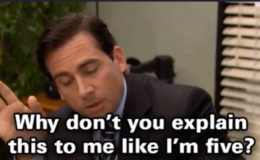Your brand story succinctly outlines your business’s reason for existing. An effective, compelling story creates resonance with your ideal customers and delivers top-of-mind awareness that drives return visits. Once you find your brand story, it helps cement in everyone’s mind—from owners to junior employees and brand advocates—the importance of your place in the market.
Recently, I wrote a blog post about the importance of brand storytelling, where I made the point that sharing your story is as much a part of your brand as the product or service you offer. Potential customers can find other products or services, but by adding your story to the equation, what you offer becomes unique.
An example that comes to mind is of a bed and breakfast owner I spoke to in 2021. He’d come to me for content marketing and PR help, after being stumped with how to market his latest venture, the result of a career. The B&B was not situated in an ideal location and had a fair amount of competition. Additionally, their rates were on the high end of the spectrum.
The process of discovery
The place did have one very important thing going for it, however: It was the oldest, all-original building in town, and it was still owned by the area’s longest-standing family. What’s more, most of the folks who would be their core clients would be from within 100 miles, meaning the history of the place would be very significant to these folks. His was a sound, sellable story, one that jibed perfectly with his ideas for content marketing.
I helped him with a slogan, some web design and a logo. In March, I got an email from him saying he was booked through summer 2023.
That got me thinking, however, about the process of discovery company owners go through when trying to uncover their brand story. It’s not easy or fun, and many cower at the very thought, but those who are able to get at the raw nerve of why they are bringing a product to market are often rewarded for their efforts with consumers’ trust, buy-in and repeat business. People, we forget, do business with folks they (a) like and (b) who are like them.
Finding your brand story
If you’re struggling to find your story, these steps should help.
Quit thinking it has to be complex.
No one is asking you to reveal things only a therapist should hear. Instead, spend some time getting to the core of why the business is very important to you. Don’t stop at “because it fills an unmet need,” either. Look at how the skills and experiences you bring to the table align with that need. For example, maybe the restaurant you’re opening has less to do with the market than with a desire on your part to bring some of your family’s recipes to your local community, which happens to be a place you feel would appreciate them.
Wouldn’t your family history resonate in this case? I think so.

There’s a now-closed restaurant—Jestine’s Kitchen—in Charleston, S.C., that appealed to me less for the food than for the rich history of the family and the lady who cooked for them. I’m not a fan of Southern cooking, but upon reading their story, and how the restaurant owners were using her recipes to keep her legacy ongoing, I became a fan of the establishment.
Bore deep in looking for your brand story—but not too deep.
Your brand story doesn’t have to be only about you. The goal is to tie together the uniqueness of your experiences, goals and beliefs to the you’ll be serving. But instead of thinking “I love fish tacos, so I want a fish taco shop in my area,” think “What can I do with my love of fish tacos to meet a need in my area?” Your brand story starts with you, but the end-goal is your customers’ needs.
The owner of a pool company I spoke to recently expressed that a mistake he made early on was in thinking everyone who could afford a pool actually desires one. His marketing materials, therefore, highlighted how hot Texas summers are, how much enjoyment pools bring and the features that could be included when constructing an in-ground pool. He soon realized his mistake: The large pool builders already own that message.
He needed to focus on the folks who didn’t have pools but who would benefit by having an activity for kids during the summer, and who could not afford fancy vacations or spas. This tied in perfectly with his story, since his own family was not well-to-do, and a pool was veritably a babysitter during the summer months. By playing up his story in his content marketing, he immediately saw an uptick in business.
Are you ready to find your brand story?
Remember, content marketing begins with your brand story, but it’s not just about your story. How well you execute tying together your story, the needs of the market, and the quality of the venture, is just as important.
I’d love to hear your thoughts on “How to find your story.”





